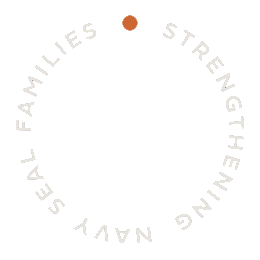
Lessons From The C4 Ranch Paying for Patience
We’re taught to trust the process, but sometimes the process is not trustworthy. I learned that this summer working on my 1968 Chevy C10 pickup truck. At the beginning of Summer, the blinkers, windshield wipers, windows, and heater did not function. In addition, the dash pad was cracked and brittle, the steering wheel was charred and crusty, and the dash board itself was peeling and illegible. No problem, each of these problems can be solved with time and effort, or so I thought.
Getting myself under the dashboard to remove all the parts required a new form of contortion and yoga that no amount of mindful breathing could overcome. Nuts and bolts were buried underneath old insulation, rats nests, and each was rusted in place or stripped the first time I tried to remove anything. No problem — any minute now, the process would swoop in and rescue me. I fought through, removed everything over the span of multiple days and afternoons, often working until my forearms and neck cramped from wedging myself in between the seat lever, the brake pedal, and the heater vents. I was making progress, and I had been able to restore most things without new parts. With a sigh of relief, I fixed the blinkers and the wipers and had an ecstatic moment as they each clicked and whirred to life beautifully.
Now, it was time for the glamor projects — the easy stuff. I put the dash bezel (the piece of plastic that holds all the main gauges in the dash board) on my work bench and started sanding and patching the broken pieces. I settled in as I congratulated myself on my Zen calm — ‘this is how I roll,’ I said to myself.’ Soon, it was time for paint. The bezel had long faded chrome accents and a flat black base. Easy — I’d paint the black base, then paint the chrome pieces into a classy shade of silver (chrome is so tacky anyway, I thought), then come back and lay down a few coats of clear coat to make the whole thing look like it was dipped in glass. The first coat of black went down great, until I peeled off the masking tape three days later and pulled up not only the fresh paint I’d laid down, but the underlying paint and a layer of the original plastic underneath. What followed was a three-week battle: bondo would crack, paint would crinkle, run, splatter, peel and repeat. What’s worse, after each layer of paint, I had to wait 24 hours to fix the mistakes. I painted and repainted, determined to get the process in play.
Somewhere in the process, I’d forgotten one key option: money. Deflated, I looked online to find that replacement dash bezels are a whopping $39. The new dash looked better than anything I could have restored, and I installed it in an hour. Sometimes our own patience and desire to get things right can make us overlook simple, practical and superior solutions. In the end, I realized that even if I could have gotten perfect paint, there’d still be no comparison to the original look I got from the new piece. In this case, I paid the price for my patience. Sometimes the process can be overrated, but I’m still loving the sound of my blinkers clicking on and off, which I earned full stop.
How does this relate to the mission of the C4 Foundation? We often can become overly confident in our own abilities to go it alone, to think that we have the answers, and that it is only on our shoulders to get through challenge. Working in a shop provides us a laboratory for looking at how our own minds work under pressure and with few resources. Like life itself, there is always a balance between self-discovery and asking for help. The C4 Foundation exists to support the autonomy and tools that families have discovered that work for them, with a little help from our programs. Similar to my struggles restoring my truck, the long way can work, sure, but in the end calling for help and taking the simple approach was much more effective, and still allowed me to complete many of the steps that were within my skillset. The process does not have to involve going back to first principles with each step, it just has to involve intentional forward progress. I guess I never would have learned that without going through this — the process worked after all.
Written by Glenn R. Fox, PhD, Chief Scientific Officer, The C4 Foundation



